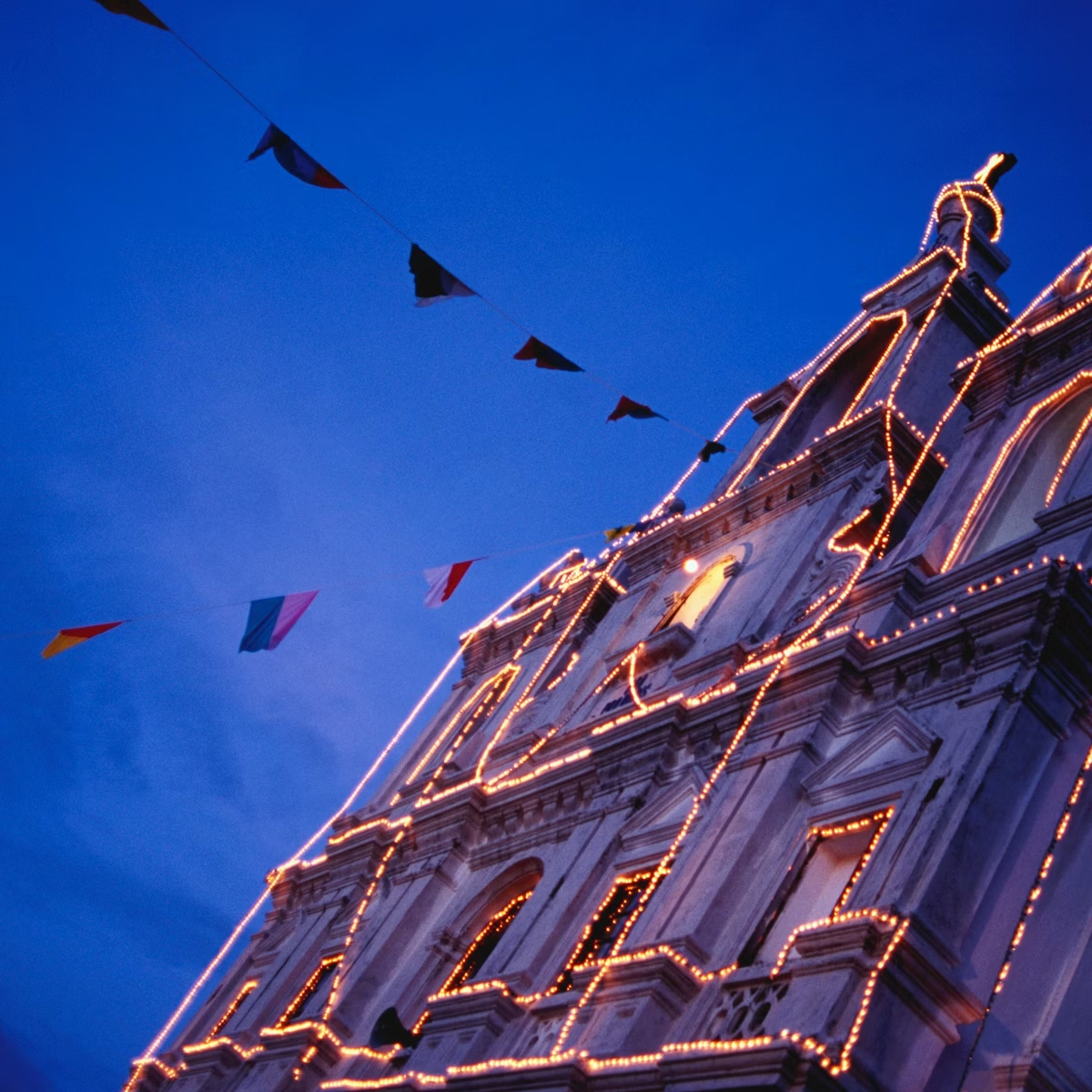Modelled on the original design of St Peter’s in Rome, this impressive church was built by Italian friars of the Order of Theatines, sent here by Pope Urban VIII to preach Christianity in the kingdom of Golconda (near Hyderabad). The friars, however, were refused entry to Golconda, so settled instead at Old Goa in 1640. The construction of the church began in 1655, and although it’s perhaps less interesting than the other churches, it’s still a beautiful building and the only domed church remaining in Goa.
Though the altar is dedicated to Our Lady of Divine Providence, the church is named after the founder of the Theatine order, St Cajetan (1480–1547), a contemporary of St Francis Xavier. Born in Vicenza, St Cajetan spent his whole life in Italy, establishing the Order of Theatines in Rome in 1524. He was known for his work in hospitals and with ‘incurables', and for his high moral stance in an increasingly corrupt Roman Catholic church. He was canonised in 1671.
The facade of the church is classical in design and the four niches on the front contain statues of apostles. Inside, clever use of internal buttresses and four huge pillars have given the interior a cruciform construction, above the centre of which is the towering dome. The inscription around the inside of the base of the dome is a verse from the Gospel of St Matthew. The largest of the altars on the right-hand side of the church is dedicated to St Cajetan himself. On the left side are paintings illustrating episodes in the life of St Cajetan; in one it appears, quite peculiarly, that he is being breastfed at some distance by an angel whose aim is remarkably accurate. Traditionally, the last mortal remains of deceased Portuguese governors were kept in the church’s crypt, beneath the reredos (ornamental screen), in lead coffins until their shipment home to their final resting place. The last few, forgotten for more than three decades, were finally sent back to Lisbon in 1992.
Adjoining the church, the Convent of St Cajetan is nowadays a college for recently ordained priests.





